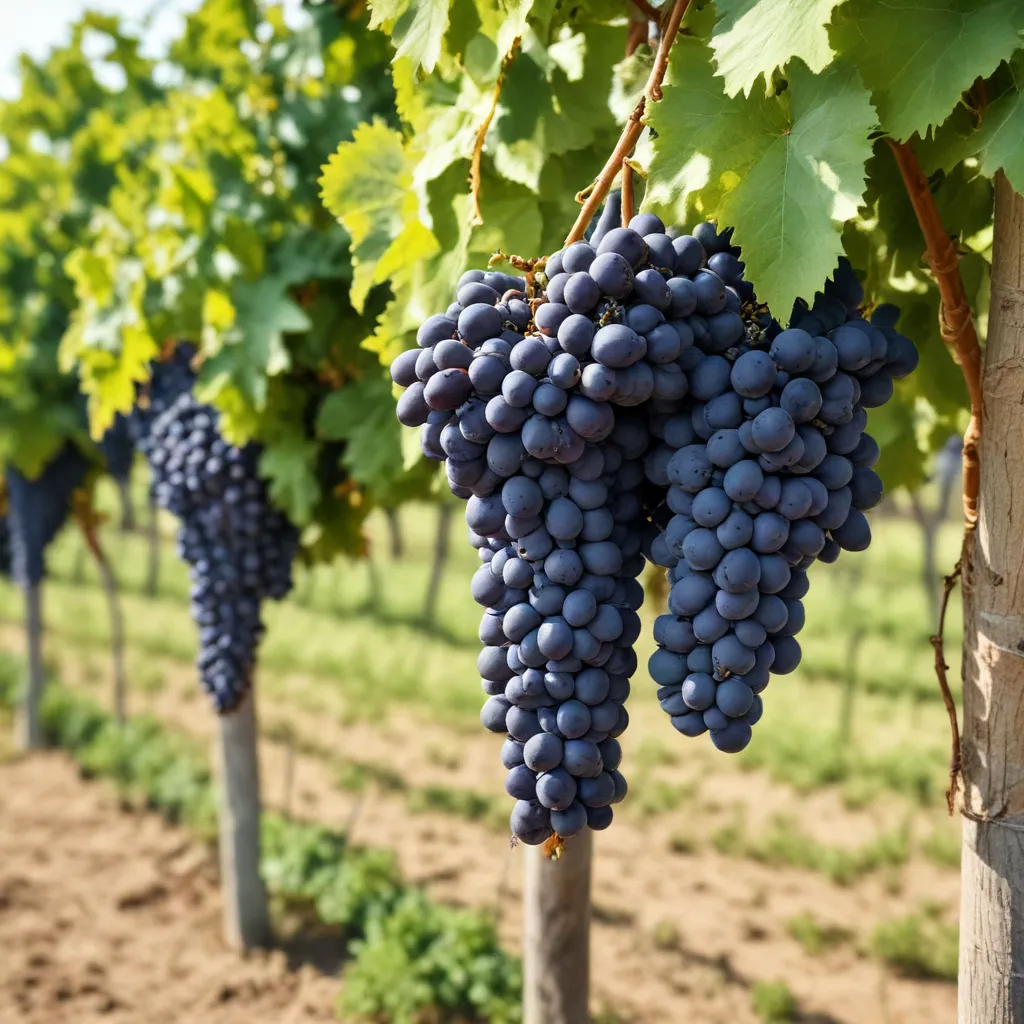
In the heart of a thriving wine region, sustainability has become the guiding principle for a new generation of vintners committed to preserving the land for the future. At the Wine Garden Inn, we have embraced this ethos wholeheartedly, crafting our wines through eco-friendly viticulture practices that minimize our environmental impact while producing exceptional quality.
Sustainable Grape Cultivation Practices
Our journey towards sustainability begins in the vineyard, where we have implemented a suite of organic and biodynamic farming techniques. By eschewing synthetic pesticides and fertilizers, we nurture the delicate balance of our ecosystem, promoting biodiversity and soil health.
Organic Farming Techniques
Our certified organic vineyards are a testament to our commitment to natural farming. We rely on natural pest control methods, such as the introduction of beneficial insects, and utilize compost and green manure to enrich the soil without the use of harsh chemicals. This holistic approach allows the vines to thrive while preserving the integrity of the land.
Biodynamic Viticulture
Beyond organic practices, we have embraced the principles of biodynamic viticulture, which view the vineyard as a self-sustaining, interconnected organism. By following the lunar calendar and incorporating preparations made from natural ingredients, we work in harmony with the rhythms of nature to enhance the terroir expression of our wines.
Integrated Pest Management
To further minimize our environmental impact, we have implemented an Integrated Pest Management (IPM) system in our vineyards. This approach combines cultural, biological, and selective chemical methods to control pests and diseases, reducing the need for broad-spectrum pesticides. By focusing on preventive measures and targeted interventions, we maintain the health of our vines while protecting the surrounding ecosystem.
Environmental Impact Mitigation
Sustainability extends far beyond the vineyard, and we have made significant strides in reducing the overall environmental footprint of our winemaking operations.
Renewable Energy Sources
Recognizing the importance of clean energy, we have invested in a state-of-the-art photovoltaic system that allows us to harness the power of the sun to meet a large portion of our energy needs. This commitment to renewable energy sources aligns with our vision of a more sustainable future.
Water Conservation Strategies
Water is a precious resource, and we have implemented innovative strategies to reduce our consumption and maximize efficiency. Our vineyards employ advanced irrigation techniques, and we have installed rainwater harvesting systems to capture and reuse water for various winemaking processes.
Soil Health Management
Healthy soils are the foundation of our sustainable viticulture practices. We prioritize the use of organic amendments, cover cropping, and reduced tillage to promote soil fertility, structure, and biodiversity. By nurturing the living ecosystem beneath our vines, we ensure the long-term viability of our vineyards.
Biodiversity Preservation
At the Wine Garden Inn, we recognize that our role as stewards of the land extends beyond the vineyards. We have taken proactive steps to preserve and restore the natural habitats that surround our estate.
Habitat Restoration
A significant portion of our property is dedicated to native oak woodlands and migratory wildlife corridors, which we have meticulously maintained and enhanced. By creating these protected areas, we provide a sanctuary for a diverse array of plant and animal species, contributing to the overall ecological balance of the region.
Native Plant Integration
In our landscaping and garden design, we have prioritized the use of indigenous plant species that are adapted to the local climate and support the native wildlife. This not only adds to the natural beauty of our property but also promotes pollinator populations and strengthens the resilience of the surrounding ecosystem.
Pollinator-Friendly Practices
Recognizing the vital role of pollinators in the health of our vineyards, we have implemented bee-friendly practices throughout our estate. This includes the strategic placement of flowering plants, the avoidance of harsh pesticides, and the preservation of wildflower meadows – all of which contribute to the thriving population of bees, butterflies, and other beneficial insects.
Certification and Labeling
To ensure the transparency and integrity of our sustainable practices, we have sought out third-party certifications that validate our commitment to eco-friendly viticulture.
Third-Party Organic Certification
Our vineyards have been certified organic by the USDA National Organic Program, demonstrating our adherence to rigorous standards that prohibit the use of synthetic chemicals and prioritize soil health and biodiversity. This certification serves as a testament to our dedication to sustainable farming.
Sustainable Winegrowing Programs
In addition to our organic certification, we have also embraced the principles of sustainable winegrowing through our participation in programs like the California Sustainable Winegrowing Alliance (CSWA). These comprehensive frameworks assess our practices across a wide range of environmental, social, and economic factors, ensuring that our wines are produced in a responsible and holistic manner.
Eco-Friendly Branding
To communicate our sustainable ethos to our guests, we have thoughtfully designed our packaging and branding to reflect our commitment to the environment. From the use of lightweight and recycled materials to the incorporation of eco-friendly imagery, every aspect of our wine experience is aligned with our dedication to sustainable practices.
At the Wine Garden Inn, our journey towards eco-friendly viticulture is more than just a passing trend – it is a core part of our identity and a driving force behind every decision we make. By embracing sustainable farming techniques, minimizing our environmental impact, and preserving the natural ecosystems that surround us, we strive to create wines that not only delight the palate but also honor the land that nurtures them. Join us on this winemaking journey as we continue to push the boundaries of what it means to be an eco-conscious vintner.
